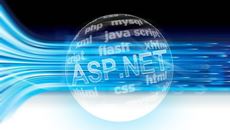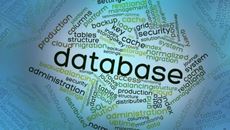- Delivery Method Online
- Professional Certificate
- 24hrs Suggested Study Time
- 3 Months Access
- Tutor Support
- Study On Any Device
- 10503 Students
C# Programming Fundamentals

Learn the fundamentals of computer programming with the new C# programming language.
Learn the fundamentals of computer programming with C#, the in-demand and incredibly useful programming language that incorporates the best features of Visual Basic, C++, and Java.
You'll first develop your understanding of programming fundamentals: input/output operations, decision making, and looping. Then, we'll explore the many benefits of object oriented programming, with plenty of vivid, real-life examples.
Then, you'll gain hands-on experience with sequential data files, and you'll be able to build a professional-looking and intuitive Graphical User Interface (GUI) application on your very own computer.
Because there is no better way to learn programming than hands-on practice, almost every lesson includes practical examples and assignments you can use to develop your knowledge of programming.
Learn to program the right way: by using a state-of-the-art language to build impressive applications on your schedule and on your very own computer.
Courses are delivered to you through expertly executed lessons, online instruction and interaction with like-minded students. Our courses are designed to deliver all of the benefits of studying in a classroom whilst giving you the flexibility to study at a time and place to suit your needs. You can access your classroom 24/7 from any device with an internet connection.
This course has a 3 month duration. You'll complete comprehensive lessons, quizzes and assignments before submitting your final exam at the end of the course to achieve your certificate. Courses must be completed within the 3 month access period.

Mike Orsega
Mike Orsega has a Bachelor's Degree in Physics from Pennsylvania State University and a Master's Degree in Applied Math from the University of Georgia. He is currently working on a Ph.D. in Computer Science at the University of Tennessee. Mike tea... Read more
Read Mike Orsega's ProfileFrequently Asked Questions
What people are saying about our courses
The Learning Environment
From the moment that you enrol in the C# Programming Fundamentals you will become an integral part of our learning community. You'll find yourself with the freedom to learn at a speed that suits you, on any device, from anywhere in the world. Achieving your career goals no longer has to mean compromising family and work commitments.
Ready to get started?
Enrol NowOur Values
Learn At Your Own Pace
We believe in personalised learning. That's why we provide all the tools and support you need to succeed at your own pace. With flexible learning, you'll stay motivated and retain more information. Plus, you can balance your studies with work and family commitments to make your dreams a reality.
We Won't Break The Bank
Education should be accessible to anyone who wants to learn. That's why we offer some of the most competitive prices in the industry with payments plans for just $25 per week. Investing in your future is a smart choice and doesn’t have to break the bank.
Industry-Led Courses
There's no better way to learn than from experts with years of experience in your field. That's why each of our 200+ industry-led courses are designed to give you a real-life perspective on your industry. With our expert mentors, you'll learn from people who have a wealth of knowledge and experience, and who are passionate about sharing it with you.
Get The Personal Support You Deserve
At Vibe Learning, we're real people who are dedicated to providing you with personal support every step of the way. Our industry experts are not only professional and knowledgeable but also incredibly passionate about sharing their expertise with you. With their guidance, you'll gain invaluable insights and practical knowledge to help you succeed.
Still looking?
Check out the following courses related to C# Programming Fundamentals:


